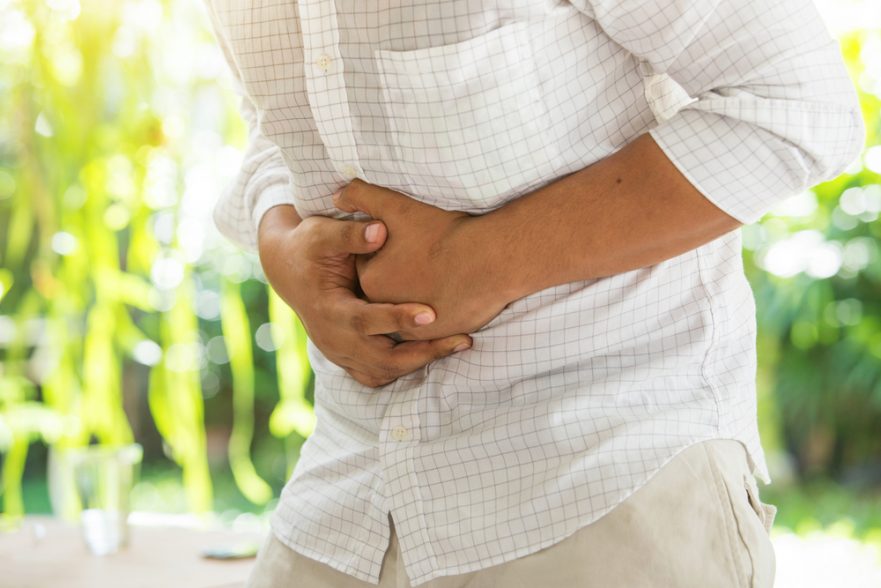If the news coming out of the nation’s capital about government shutdowns and border walls is making you feel queasy, perhaps it’s more than just the news that is affecting you. The recent 35-day shutdown of the federal government halted or impaired food safety inspections by federal agencies, including the Food and Drug Administration and the Department of Agriculture. The FDA did not announce the resumption of what it described as high-risk inspections of such foods as seafood, soft cheeses, and fruits and vegetables until 25 days into the shutdown, raising the possibility that the food products delivered to your favorite restaurant might not be safe to eat.
What is food poisoning?
According to the Centers for Disease Control and Prevention, 48 million people fall victim to food poisoning in the United States each year. The term “food poisoning” actually refers to any of the more than 250 foodborne illnesses caused by a number of different parasites, bacteria and viruses. Food poisoning may also be caused by chemical contamination of foods and food products.
The effects of food poisoning depend upon the germ causing the illness. Common food poisoning symptoms you might experience after eating contaminated food include:
- Upset or cramping stomach
- Diarrhea
- Nausea and vomiting
- Fever
- Weakness
The risk of eating contaminated food and developing food poisoning should not be taken lightly. Although some individuals might only suffer from mild symptoms, the FDA estimates that 128,000 people require hospitalization and another 3,000 victims of food poisoning die each year. If you were sickened by restaurant food contaminated by botulism, salmonella, listeria, E. coli, norovirus, or other germs or contaminants, you could have a claim against the restaurant and other parties, including the supplier of the product, for damages.
Steps restaurants should take to reduce risk of serving contaminated food
Restaurants and other establishments serving prepared food to the public must adhere to minimum standards set by state or local government agencies. For instance, the Oregon Department of Agriculture recommends that restaurants meet the following minimum standards for handling food products:
- Keep cutting boards and preparation surfaces clean.
- Anyone handling food products should wash their hands before doing so.
- Fruits and vegetables should be thoroughly washed before used.
- Avoid cross contamination of raw meats and other products, such as cooked foods, raw or cooked vegetables and fruits, and other foods by using separate knives, plates and preparation surfaces.
- Raw meats should be stored separately and away from fresh fruits and vegetables.
- Uncooked fish, shellfish, poultry and meat should be kept refrigerated at recommended temperatures to avoid contamination and should not be left out on countertops or other preparation surfaces.
Even though a restaurant follows recommended practices designed to avoid food contamination, it can be difficult for a restaurant or food wholesaler to avoid purchasing contaminated foods. If a manufacturer or producer of a food item is identified as being the source of a contaminated product by federal inspectors, it could take almost two months for its product to be recalled from stores and restaurants, according to a report from the U.S. Department of Health and Human Services.
Compensation rights of victims of food poisoning
If you were the victim of food poisoning, you might have a right to sue the restaurant that served the contaminated food. Personal injury attorneys know that food poisoning claims require thorough investigation to gather evidence proving the following:
- You were diagnosed with food poisoning.
- The source of the food poisoning was contaminated food.
- The contaminated food came from a restaurant at which you ate or purchased the food for at-home consumption.
- You were injured or sickened as a result of eating the contaminated food.
The investigation into your claim could produce evidence proving other parties in addition to the restaurant to be at fault in causing you to become ill. For example, if the source of the food poisoning is determined to be shellfish served at a restaurant, the contamination could be traced back to the source of the shellfish. The result could be multiple parties sued to be held responsible for causing your illness from food poisoning and forced to pay compensation.
Speak with an Oregon personal injury lawyer
Food poisoning is a potentially life-threatening illness. Properly identifying the source of contaminated food to make a claim for damages on behalf of victims requires assistance from a personal injury attorney experienced in handling food poisoning claims.

